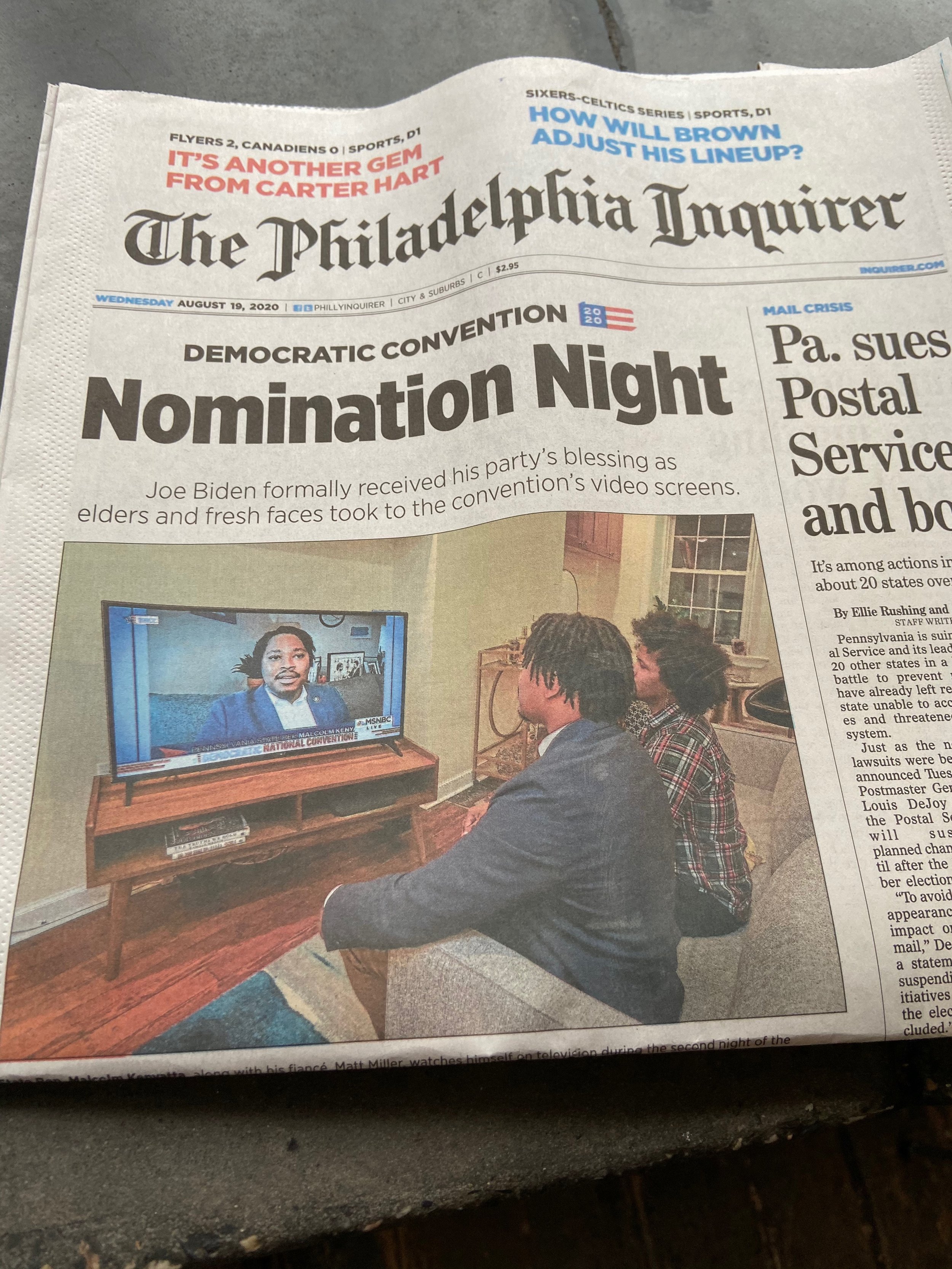An incredible blogger ran a story about our moment. https://www.livingoutloud20.com/post/watch-pa-rep-malcolm-kenyatta-appears-on-dnc-with-fianc%C3%A9-dr-matthew-miller
Representative Malcolm Kenyatta (181st District-North Philadelphia) was one of 17 rising political stars and the only openly gay Black man to participate in the keynote address delivered during the second night of the Democratic National Convention. But viewers received a bonus during Kenyatta's pre-recorded remarks when his fiancé, Dr. Matthew Miller joined him onscreen for a brief but captivating moment that undoubtedly reverberated across America.
The Philadelphia power couple spoke on the significance of Joe Biden's support of their relationship.
Kenyatta: "When I wanted to marry the man I loved, Joe Biden was the first national figure to support me and my family. "
Miller: "Appreciate you man."
That "appreciate you man" has us completely verklempt. And we're not alone. The couple's clip became a topic of discussion on CNN's New Day during an interview with openly gay former presidential candidate Pete Buttigieg.
We got to see ourselves not only during the DNC 2020 but the Philadelphia Inquirer featured us on the front page as we watched ourselves the next day.
While it was only three words, it was enough for President Biden to shout me and Malcolm out during the Pride Month celebration at the White House in July 2021. Our moment apparently “stole the show” and it is now reflected in the official White House transcript. https://www.whitehouse.gov/briefing-room/speeches-remarks/2021/06/25/remarks-by-president-biden-commemorating-lgbtq-pride-month/






